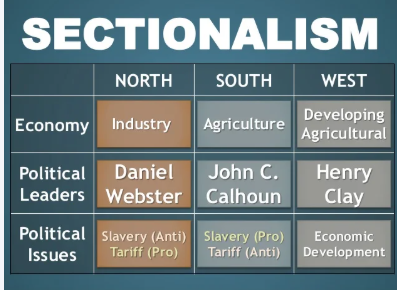APUSH Jefferson-Madison-Monroe
1/22
Earn XP
Description and Tags
Period 4a
Name | Mastery | Learn | Test | Matching | Spaced | Call with Kai |
|---|
No analytics yet
Send a link to your students to track their progress
23 Terms
What was the biggest reason for the purchase of Louisiana?
Secure port of New Orleans and access to Mississippi River
Who facilitated the Louisiana Purchase, from whom, and for how much
Thomas Jefferson bought from Napoleon, for $15M
What was the controversy with the Louisiana purchase and how did it get resolved?
The Federalists argued that the purchase was unconstitutional. Jefferson could not buy it because that power was not written in the Constitution. Jefferson determined that his constitutional power to negotiate treaties allowed the purchase and agreed to the deal, which almost doubled US territory
What was the Lewis and Clark’s Expedition about?
to explore and to map the newly acquired territory, to find a practical route across the western half of the continent, and to establish an American presence in this territory before Britain and other European powers tried to claim it. They were also to study the area's plants, animal life, and geography, and to establish trade with local Native Americans.
What was the route of the Lewis and Clark’s Expedition?
From St Louis, Missouri up the Missouri River until Columbia River in Oregon and the mouth of Pacific Ocean

Who was Sacagawea?
Shoshone woman who was a guide and an interpreter to Lewis and Clark, but her greatest value to the mission may have been simply her presence (to the Native Americans)
What was the The Embargo Act of 1807?
signed by President Thomas Jefferson, prohibited American ships from trading in all foreign ports.
This severely damaged America’s shipping economy (esp in New England)
Causes of the War of 1812
1) British seizing and boarding American ships and the “impressment” of American sailors
2) Britain restricting U.S. trade with France
3) Britain did not give up western forts as they promised in the Treaty of Paris 1782
(The first three were main reasons: that there was a violation of American Shipping Rights)
4) Britain provided arms and support to Native Americans in the western frontiers who were attacking American settlers.
5) Americans wanted to take Canada and kick Britain out of North America
Outcome of the War of 1812
It ended in a stalemate with the Treaty of Ghent 1814 where both sides agreed to return land taken during the war and end fighting
• It gained America international respect because it was able to fight Britain,one of the world’s greatest powers, to a draw.
• It instilled a greater sense of nationalism among its citizens as they worked together to defeat an enemy.
• It lead to the creation of a strong military.
• It also encouraged economic independence, growth of industry within America.
• It allowed the survival of the British Canada. Some historians believe if the America had won the War of 1812, Canada would have become part of the United States because many Americans would have migrated north.
• Decline of Federalist Party, who is seens as unpatriotic after the Hartford Convention
But Battle of New Orleans happened after that
Who was Henry Clay?
a “War Hawk” in Congress, supported going to war, also helped negotiate the Treaty of Ghent.
Who was Andrew Jackson?
led troops during the War of 1812 and became a war hero after the victory at the Battle of Orleans
William Henry Harrison
Was the governor of the Indiana Territory. He led troops against the Indian confederacy (led by Tecumseh and “The Prophet) in the Battle of Tippecanoe and won.
Tecumseh and “The Prophet”
Shawnee, united various tribes against the American settlers. The Prophet lost his following after the Battle of Tippecanoe, and Tecumseh died in the Battle of the Thames
Which Presidential Administration took the matter in hands with the French after their outcry of the "High Class Federalists" in America?
John Adams
This event refers to tensions between the United States and France during the late 1790s, particularly the Quasi-War (1798–1800),escalated with the XYZ Affair in 1797–1798 when French diplomats demanded bribes from American envoys before negotiations could begin.
McCullough v. Maryland
Case whereby the federal government set up national bank in Maryland, Maryland wants to tax it, but overturned by Supreme Court
-strengthen federal power over state power and that the states cannot tax federal banks
Marbury v. Madison
Case whereby Marbury requested Supreme Court to issue the writ of mandamus for him to be judge, but was denied
Judicial review lets the judicial branch do two things: 1) interpret the Constitution and decide what it means, and 2) stop the executive and legislative branches from doing things that go against the Constitution. (Power to the judicial branch! Supreme Court)
What was Henry Clay’s Missouri Compromise?
Admit Missouri as slave state
Admit Maine as free state
Prohibit slavery in territories of the Louisiana Purchase north of the 36°30’ parallel
Sectionalism
North:Anti slavery, pro tariff
South: Pro slavery, anti tariff
West: for economic development

Election of 1800
House of Representatives selected president because of deadlocked election between Thomas Jefferson and Aaron Burr
Burr Conspiracy
Aaron Burr’s scheme to create new nation from the Southern territory of the US
Jefferson’s government
Reduced federal budget
Adams-Onis Treaty (1819)
gave America Florida
Nullification Controversy of 1828 to 1833
arose in response to protective tariffs